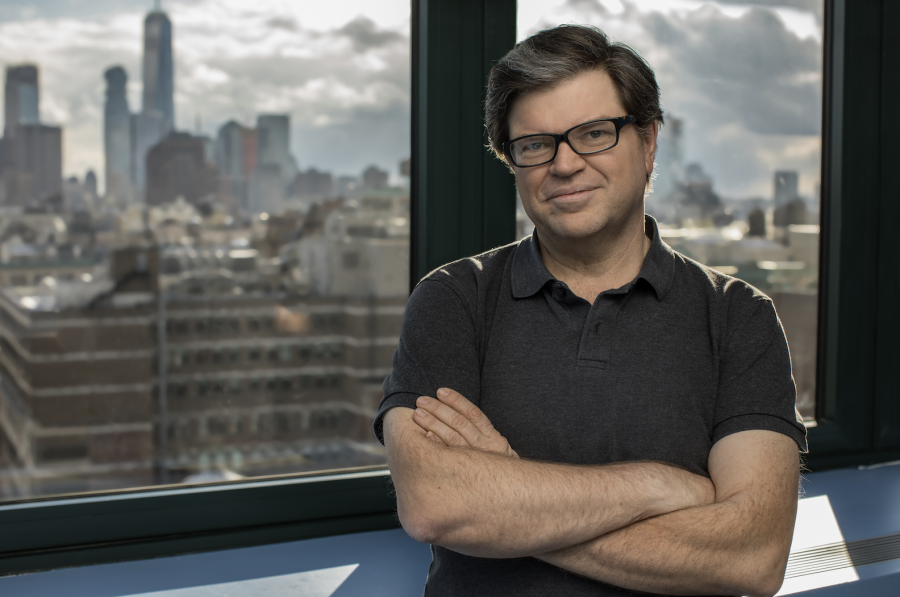NYU Courant Professor of Computer Science Yann LeCun won the A. M. Turing Award on Wednesday. The award is considered by many to be the “Nobel Prize of Computing.”
Announced by the Association for Computing Machinery — the world’s largest computing society for professionals — LeCun shares the award with his colleagues Yoshua Bengio and Geoffrey Hinton. Bengio is a professor at the University of Montreal and Hinton is a professor emeritus at the University of Toronto. Known as the “Godfathers of artificial intelligence,” the scientists will split the million-dollar prize sponsored by Google.
LeCun is the founding director of NYU’s Center for Data Science, and vice president and chief AI scientist at Facebook. He also is affiliated with NYU Tandon’s Department of Electrical and Computer Engineering and is the third member of the Tandon community to win the prestigious award in the past decade.
Reflecting on winning the award, LeCun said he’s appreciative that he and his colleagues continued their research in AI in the 1980s when many had given up exploring it and funding for research had decreased.
“I feel very, very honored and I’m very delighted,” LeCun said in an interview with WSN. “It’s a great recognition because what we were working on was not particularly popular at the time, in the computer science field in general and in deep learning in particular.”
The trio was recognized for their breakthroughs in deep learning, a subfield of artificial intelligence which has led to advancements in computer vision, speech recognition and natural language processing. These pioneering technologies have been used in everything from self-driving cars to facial recognition.
When asked about where he’d like to see the future of AI, LeCun said he’s interested in its application through digital assistants.
“What I’m interested in at the moment is moving the field forward, so allowing the use of deep learning type methods for things that we can’t do currently,” LeCun said. “[That includes] building virtual assistants that have may not have human-level intelligence, but have some notion of common sense and could help you with your daily life.”
Facebook announced on Wednesday that it will be banning white nationalist content, an initiative that is likely to use deep learning technology. LeCun mentioned that content moderation on social networking sites is an area where deep learning is commonly used to analyze large quantities of data without human input.
Despite the potential positive uses of AI, LeCun is fearful of technology being used by bad actors, such as with China’s facial recognition program that is used to track its citizens and keep Uyghur Muslims in Xinjiang — a population which they have also incarcerated and oppressed — under surveillance.
“If you have a non-democratic government, they might be inclined to deploy very widespread face recognition and basically spy on people every minute,” LeCun said. “And that’s actually happening in China.”
Still, LeCun said that the colloquial fear of a robot rebellion is misplaced.
“There is the hyped scenario of robots taking over the world, right, and that’s completely unrealistic,” LeCun said. “Nobody is actually worried about this who knows anything about it, so that’s not something we should be worried about, at least right now.”
LeCun, when looking at applications of AI in medicine and transportation safety, said that he sees more good than bad.
“Even as it stands today, the technology that we have access to is going to save lives,” Lecun said. “And that has to be positive.”
Email Akiva Thalheim at [email protected].























































































































































